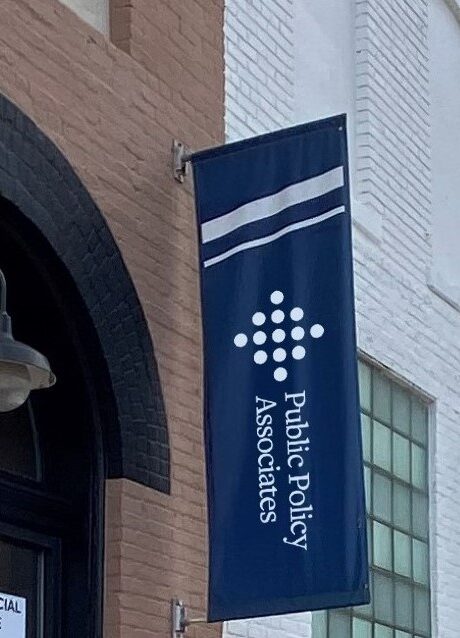
Paige Haight recently celebrated her five-year anniversary at Public Policy Associates. PPA provided her practicum experience as part of her graduate studies in program evaluation at Michigan State University. After graduation, she joined PPA full time. She has risen to Research Associate II and conducts qualitative and quantitative research related to a wide range of projects.
How did you become interested in public policy?
I became involved with an adolescent diversion program at the end of my psychology undergraduate work. I mentored a youth who was in the Ingham County justice system. I continued that work after my mentorship and instructed undergraduate students studying the diversion program on qualitative interviewing, analysis, and qualitative research.
What part of public policy research interests you most?
Public policy research is about uncovering and unraveling root causes and understanding what happens in communities. To do that, you get in the field. I’m a people person. Talking to people is really easy for me. The more research I conduct within a system, the more I find how each system is connected. Providing policymakers with good and relevant data is necessary for the success of communities.
Is there a policy area you plan to specialize in?
My master’s degree is in program evaluation and my bachelor’s is in psychology. I would like to specialize in examining the processes of policy development and implementation, and the way that policy design affects communities. I have enjoyed working in all of Public Policy Associates’ core areas—criminal and juvenile justice, education and workforce development, and healthy communities. My background leans toward criminal and juvenile justice.
How do equity and inclusion fit into research and evaluation?
It’s important all the time. Public policy affects all races and genders, populations, and subpopulations. I have a wide variety of experiences both professionally and personally that have exposed me to a diverse range of issues and people affected by those issues. Approaching communities and populations about needs has to be done compassionately and thoughtfully. In practice, our teams do a lot of background research and work very closely with our clients to make sure we understand the people and the history of the issue we are researching before we begin collecting data.
You have an interest in approaching research from an ecological perspective. Why is that important?
Here’s one example. If we’re talking about juvenile justice and there is a youth in the system, it’s important to look at the factors that contribute to their offense, charge, or outcome. There could be family factors or issues in the schools or the community. An ecological perspective can provide a holistic approach and unpack root causes that inform better decision-making for better policy.

